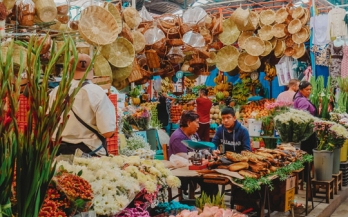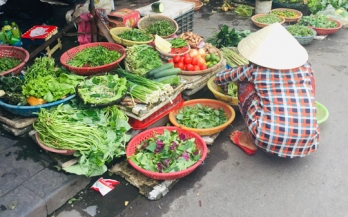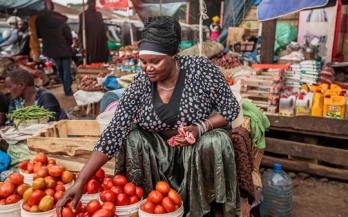These manuals have been prepared for use by persons and organisations wishing to manufacture and supply complementary foods in different countries. The manuals have been specifically prepared for use in the countries of Ethiopia, Kenya, Mozambique and Rwanda and contain generic information that will be applicable irrespective of the country concerned but also contain specific information relating to the four aforementioned countries.
Public food procurement refers to how governments purchase and provide food to defined populations. Institutional food procurement refers to food purchasing and provision by organisations like schools, hospitals, care homes, youth clubs, prisons, and workplaces. Local governments often manage public food procurement at these institutions, serving food to students, patients, employees, and their families.
These document series summarise some rapid assessments undertaken by the Global Alliance for Improved Nutrition (GAIN) to understand early impacts of the COVID-19 coronavirus pandemic on food systems in a set of low- and middle-income countries where GAIN works (Bangladesh, India, Pakistan, Indonesia, Mozambique, Ethiopia, Kenya, Tanzania, Rwanda, and Nigeria).
These document series summarise some rapid assessments undertaken by the Global Alliance for Improved Nutrition (GAIN) to understand early impacts of the COVID-19 coronavirus pandemic on food systems in a set of low- and middle-income countries where GAIN works (Bangladesh, India, Pakistan, Indonesia, Mozambique, Ethiopia, Kenya, Tanzania, Rwanda, and Nigeria).
Fighting malnutrition in all its forms is one of the major challenges of the 21st century. Addressing it will require an agricultural transformation. Within Africa, this must include a focus on small and medium-size farms, which provide about 80% of total calories in sub-Saharan Africa, as well as other small actors along the value chain.
GAIN works on supply and demand, as well as on changing incentives, rules and regulations to encourage production and consumption of nutritious and safe foods. We seek to understand and tackle barriers faced by small enterprises working to boost availability, affordability, desirability, and convenience of nutritious foods like eggs, especially for people on low-incomes.
This factsheet highlights the vastly different levels of egg supply seen across African regions, selected African countries, and selected high-income countries. It discusses why eggs remain scarce and expensive in many low-income settings, including across much of Western, Eastern, and Middle Africa.
This guide uses insights from existing inclusive business partnerships (IB) partnerships to guide NGOs and companies through the process of engaging in IB partnerships. The guide also describes how NGOs and companies can generate internal buy-in for IB partnerships, and how they must change internally in order to enable successful collaboration.
This report presents the findings of a focused ethnographic study conducted in Dessie Zuria Woreda, Amhara Region, Northern Ethiopia. The purpose of this study was to generate recommendations to guide the introduction of micronutrient packets to address issues of micronutrient deficiencies in this area.
This report presents the results of an evaluation using program impact pathway analysis approach to understand factors affecting program delivery and adherence to recommendations regarding micronutrient powders.










